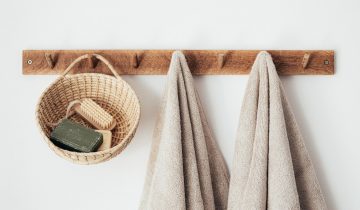written by Bushra Kiyyani
Edited by Chiqio
keywords:scent, style, perfume, bottle design
Perfume, a sensory delight that has captivated human civilization for centuries, is as much about the presentation as it is about the fragrance within. The art of designing perfume bottles has evolved into a sophisticated discipline that combines cultural symbolism, design language, and stylistic elements. This article delves into the intricate aesthetics of perfume bottles, exploring cultural nuances and aesthetic philosophies behind different designs. We will also examine how CHIQIO perfume bottles compare to those of other brands, highlighting similarities and differences across the global spectrum.
Cultural Influences on Perfume Bottle Design
Perfume bottles are more than just containers; they symbolise cultural heritage and artistic expression. Perfume bottles in the Middle East, for example, frequently represent the region’s rich history and wealth. Ornate designs, elaborate patterns, and the use of expensive materials like as gold and precious stones are typical. These bottles frequently imitate historic artefacts, expressing timeless beauty and majesty. The focus on richness and workmanship honours the region’s past commerce in perfumes and spices, both of which were highly valued commodities.
Figure- The History of Perfumery: from Ancient to Modern
In contrast, Asian perfume vessel designs frequently emphasise simplicity and harmony. Japanese aesthetics, for example, emphasise simplicity and subtle elegance. The bottles are often sleek and unadorned, reflecting Zen and Wabi-Sabi ideas that emphasise imperfection and transience. Chinese designs may use natural elements such as flower patterns or jade, demonstrating a strong connection to the natural world and traditional meaning.
European perfume bottles, particularly those from France and Italy, combine creativity and utility. French designs, exemplified by names such as Chanel and Dior, frequently combine classic elegance with contemporary touches. Bottles are often stylish and polished, with sleek lines and modest ornamentation. Italian designs, on the other hand, may favour boldness and flare, reflecting the country’s strong creative tradition and preference for opulent aesthetics.
Design Language and Stylistic Elements
The design language of perfume bottles is a visual conversation that conveys information about the brand’s identity and the fragrance’s personality. To make a lasting visual impression, major businesses frequently utilise unique forms, colours, and materials. For example, Chanel No. 5’s classic rectangular bottle, created by Coco Chanel herself, exudes ageless sophistication and simplicity. The sleek form, with clean lines and transparent glass, highlights the perfume’s golden tint.
Niche salon fragrances, like those by Byredo or Le Labo, frequently take a more handcrafted approach. These bottles often emphasise handcrafted craftsmanship and distinctive design characteristics. Byredo’s bottles, for example, are distinguished by monochromatic colour schemes and sleek, minimalist designs that evoke a feeling of contemporary elegance. Le Labo, famed for its apothecary-style bottles, use labels that appear hand-typed, emphasising the brand’s artisanal spirit and personalised scent.
CHIQIO Perfume Bottles: A Comparative Analysis
CHIQIO, a relatively newer player in the perfume industry, has made a name for itself with its distinct bottle designs. Comparing CHIQIO bottles to those of established brands reveals both unique and shared elements. CHIQIO bottles often blend modern aesthetics with traditional influences, creating a harmonious balance that appeals to a broad audience.
For example, a CHIQIO bottle may have sleek, contemporary lines comparable to those of Byredo, yet with exquisite ornamentation reminiscent of Middle Eastern grandeur. CHIQIO’s blend of styles helps it to carve out a market niche by appealing to customers who value both modern simplicity and traditional workmanship. The use of high-quality materials and attention to detail in CHIQIO bottles demonstrates a dedication to luxury and elegance, positioning the brand in the premium area of the market.
Conclusion
Perfume bottle design is a fascinating blend of cultural history, creative expression, and brand identity. From the opulent and rich designs of the Middle East to Asia’s minimalist elegance and Europe’s refined creativity, each location adds its own spin to perfume bottle aesthetics. CHIQIO, with its combination of modern and traditional components, exemplifies the art form’s ever-changing character.
In an industry where first impressions are important, the perfume bottle serves as a visual storyteller, expressing the essence of the smell as well as the brand’s personality. As customers, our enthusiasm for these designs strengthens our bond with the scents we love, transforming each bottle into a work of art.

 No products in the cart.
No products in the cart.